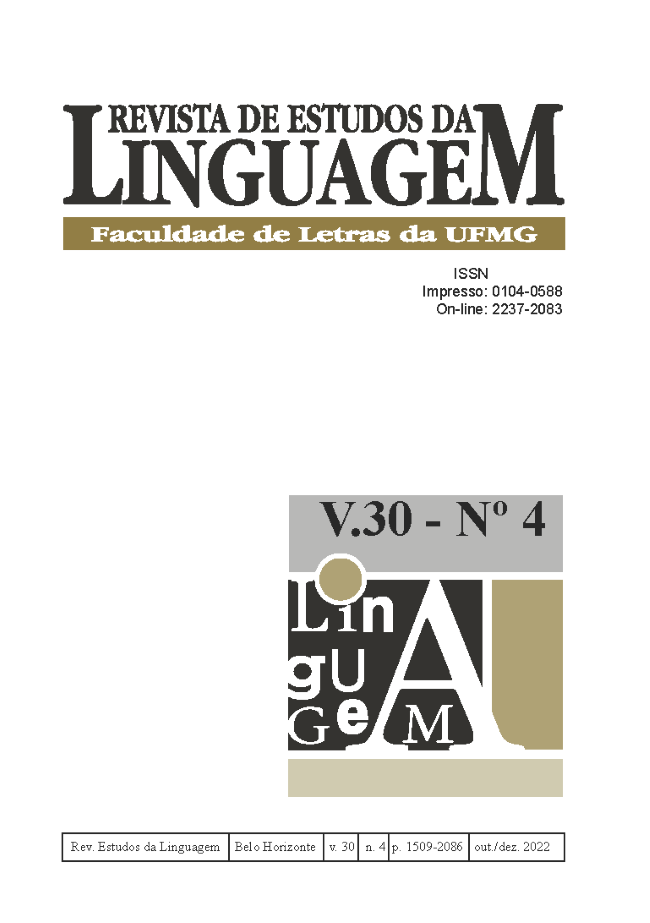Sobre as línguas de Sujeito Parcialmente Nulo
Por que o pro-drop em português brasileiro e em russo se tornaram semelhantes, mas não idênticos
DOI:
https://doi.org/10.17851/2237-2083.30.4.1896-1935Palavras-chave:
Pro-drop, sujeitos nulos, objetos nulos, clíticos, línguas de sujeito nulo consistente, línguas de sujeito nulo parcial, português brasileiro, português europeu, russo moderno, russo antigoResumo
Neste artigo, afirmo que uma visão paramétrica sobre a mudança em pro-drop não está em conflito com o fato de que nem todas as línguas de sujeito nulo parcial (PNS) apresentam propriedades idênticas. Mostro que a natureza contingente da mudança diacrônica é a razão para as pequenas diferenças entre as línguas PNS. O russo moderno (MR) e o português brasileiro (BP) são duas línguas PNS que se desenvolveram a partir dos antecessores de sujeito nulo consistente (antigo russo e português europeu) independentemente uma da outra. Relato a mudança de pro-drop experimentada por essas duas línguas, analisando as propriedades geralmente relacionadas ao parâmetro de sujeito nulo (inflexão verbal, clíticos, objetos nulos, sujeitos nulos subordinados e arbitrários), e mostro que a configuração paramétrica final em ambas MR e BP foi quase idêntica, com pequenas diferenças que podem ser atribuídas às diferentes condições iniciais para a mudança.





